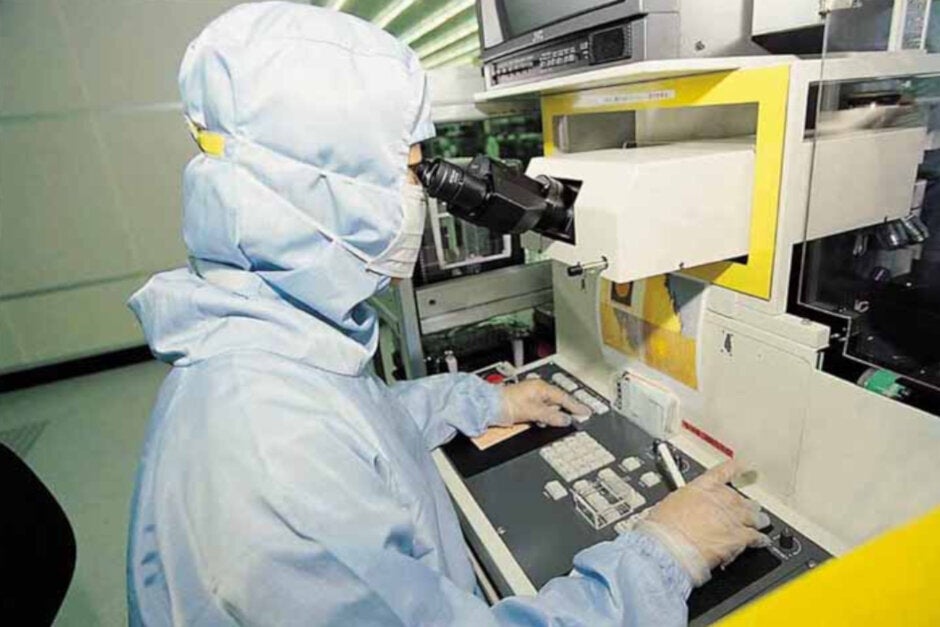Why the iPhone could outperform Android flagships significantly next year

Moore's Law is an observation made by Gordon Moore, the co-founder of Intel. In 1965, Moore wrote a paper noting that the number of transistors inside an integrated circuit doubles every year. Ten years later, he revised the law by saying that the number of transistors inside an IC will double every other year. Over time, this has been more or less reliable. We can track this by looking at the process node used by chip foundries to manufacture integrated circuits; the smaller the process number, the larger the number of transistors that can fit inside.
More transistors inside a chip increase its performance and make it more energy efficient. And currently, flagship application processors (AP) like the Snapdragon 855 and the Apple A13 Bionic are produced using the 7nm process by Taiwan Semiconductor Manufacturing Company (TSMC), the world's largest independent foundry. Next year's Snapdragon 865 Mobile Platform will be manufactured by Samsung using its 7nm EUV process. EUV stands for extreme ultraviolet lithography, which is a way to mark up chips for transistor placement more precisely; this allows additional transistors to fit inside an integrated circuit. To understand what is at stake here, consider that Huawei's Kirin 990 SoC is made using the 7nm process. The version of this chip that comes with an integrated 5G modem contains more than 10.3 billion transistors. Next year's 5nm chips will have as many as 171.3 million transistors per square millimeter.
TSMC plans on starting volume production of 3nm chips by 2022
TSMC is sure to benefit from the transition to 5G that will start picking up speed next year. JK Wang, the firm's senior vice president for fab operations says that the foundry is on track to start production of 5nm chips in the first half of 2020. That means that the A14 Bionic SoC powering the 2020 iPhones will be produced using the 5nm process which could give next year's iPhone models a performance lead over 2020 Android flagship phones.
And according to Digitimes, Moore's Law will continue to be valid in 2022 when TSMC will begin volume production of 3nm chips. Back in October, we told you that TSMC has started construction on facilities that will be used to churn out these integrated circuits in a couple of years. While Samsung has a similar roadmap to 3nm, its chips will have a lower density than TSMC's. That means that the latter's 3nm chips will pack more transistors into a small space than its rival's 3nm chips.

TSMC will manufacture 5nm Apple A14 Bionic chips next year
In the U.S., Intel failed to become a player in smartphones and earlier this year it sold its smartphone modem chip business to Apple for $1 billion. Eventually, Apple will design its own 5G modem chips, but for now, it is depending on Qualcomm's component. Intel vows to take over process leadership, but considering that its Ice Lake-U mobile processors are produced using the 10nm process, it is going to take quite an effort on the chipmaker's part.
So what happens in 2028? Will Moore's Law come to an abrupt end? Many thought that chip manufacturers were never going to get past 5nm. TSMC will build its 3nm chips in Hsinchu, Taiwan. And that is where it will conduct R&D for the development of 2nm chips according to the foundry's senior director Zhuang Zishou. At this point, there is no reason to expect the law to be repealed even when the foundries get down to 1nm which, in theory, could take place by 2026. But TSMC is working on some things to keep the law alive. One option is to stack transistors vertically instead of horizontally. The company is also investigating alternatives to silicon packaging by looking at the periodic chart. The right element could be the answer to the question that opened this paragraph.
Follow us on Google News













Things that are NOT allowed:
To help keep our community safe and free from spam, we apply temporary limits to newly created accounts: